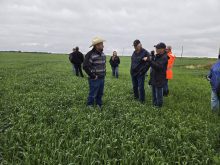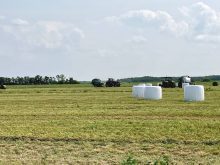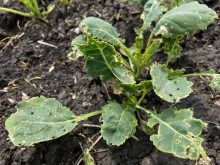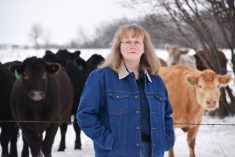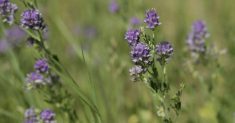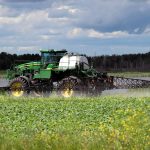“They’re telling us we didn’t have a drought.”
– ALLAN DOWNEY
Alberta and Saskatchewan producers will get a tax deferral on cattle sales this year. Interlake producers will get one, too, but southwestern Manitoba producers will just have to wait.
Producers in the southwestern region have been told they can’t get aid because they don’t have a drought.
This even though dugouts in the region were nearly empty last year and pastures still haven’t recovered from record-dry conditions in 2008.
Read Also

CUSMA access key among other trade noise: Seeds Canada panel
Seeds Canada conference panelists say Canada needs to stay focused and wait as U.S. trade and tariff chaos develops, and a Canada-U.S.-Mexico Agreement review looms
Southwestern Manitoba producers earlier this month received a letter from Manitoba Agriculture, Food and Rural Initiatives telling them they did not qualify for special government assistance for drought losses in 2008.
The letter said a MAFRI AgriRecovery team did an analysis of the southwest region and determined that existing programs were sufficient to deal with producers’ financial situations.
Producers were also told weather stations in the region last year recorded between 95 and 120 per cent of normal rainfall.
“I guess our dugouts were bone dry last year because we had 120 per cent of rain,” said Allan Downey, who raises cattle near Coulter.
“They’re telling us we didn’t have a drought. It’s somewhat insulting, I think.”
Meanwhile, Alber ta and Saskatchewan cattle producers will receive tax deferrals on breeding livestock sold in 2009 because of drought.
Producers in Manitoba’s Interlake and Westlake regions will also receive deferrals because of excessive moisture.
The federal government made the announcements July 22.
The deferrals allow eligible producers in designated areas to defer income tax on the sale of breeding animals for one year to help replenish the breeding herd the following year.
The deferrals used to apply only if drought substantially reduced feed supplies. Recent changes to the rules allowed producers who lose hay to flooding to qualify as well.
Both producers in the Interlake and the southwest were granted tax deferrals for 2008. Interlake farmers will also get deferrals for 2009 because of repeated wet weather this year.
Both Keystone Agricultural Producers and the Canadian Cattlemen’s Association applauded the measures.
But southwestern Manitoba producers will get neither tax deferrals for 2009 nor special assistance for 2008.
“Southwest Manitoba has not been identified through this process in consideration for additional designations. The criteria are not confirmed to be met at this point,” said Trevor Hadwen, an Agriculture and Agri-Food agri-climate specialist in Regina.
Hadwen said the rule of thumb is that normal forage production must be less than half of normal and the affected area must be large enough to have an impact on the industry before producers can qualify for tax deferrals.
The southwest region will be assessed later this year after crops are off to see if producers qualify then, Hadwen said.
Southwestern Manitoba experienced dry spells in 2006 and 2007. Drought in the region was most severe from the late summer of 2007 to mid-summer of 2008.
The first six months of 2008, the most critical period for hay production, was one of the driest ever recorded in the region, said Scott Day, a MAFRI business development specialist in Melita. It was so dry that the Souris River stopped flowing on May 1, 2008, the earliest in memory.
Conditions are better this year. Day said spring run-off recharged most dugouts and hay yields are near average, even though forage crops are two weeks late because of cool weather.
But pastures are still showing the effects of last year’s dry weather, said Day.
“The pastures are certainly better than they were because of the July rains but they’re still showing impacts from last year’s drought.” [email protected]






